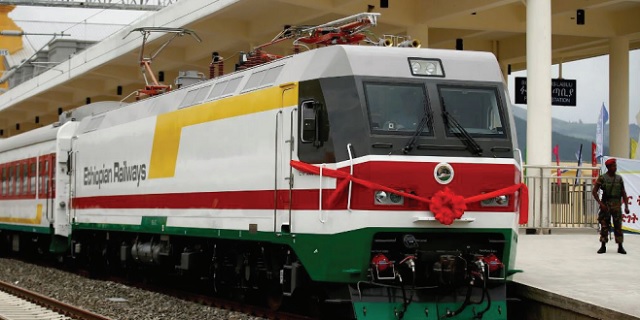
Kampala, Uganda | INDEPENDENT TEAM & AGENCIES | Rwanda and Tanzania have agreed to review the design of Isaka-Kigali standard gauge railway. They have dropped the proposed use of diesel engines in favour of electric locomotives. The line is proposed to link the Tanzanian port of Dar-es-Salaam and Kigali; a stretch of 1,320km.
The initial diesel Standard Gauge Railway from the port of Dar es Salaam to Kigali was expected to cost about US$2.5 billion. The bill was to be settled on an approximately 50-50 basis. It is not clear how much the new rail will cost and the financing model for the project has also not been revealed.
The initial project was launched on Jan. 20 in Dar es Salaam following a meeting between President Paul Kagame of Rwanda and his Tanzania counterpart, John Pombe Magufuli.
The main considerations for the recent changes were train efficiency and impact on environment. The electric trains scored better than diesel on both counts. The move puts the project planning in sync with international trends which are shifting away from diesel over environmental concerns.
The change in plan means that the proposed trains will now be faster; with cargo trains travelling at 120km/hr instead of the earlier planned 80km/hr and the passenger train travelling at 160km/hr instead of the earlier proposed 120km/hr.
Rwanda’s Minister of State in charge of Transport, Jean de Dieu Uwihanganye, and Tanzania’s Minister for Works, Transport and Communication, Makame Mbarawa agreed the changes in a meeting in Kigali.
“We need to reduce the time of travel and cost of transportation of people and goods between Dar es Salaam and Kigali and improve efficiency for the railway,” said Minister Uwihanganye during a press briefing.
The two ministers directed the Rwanda Transport Development Agency (RTDA) and Joint Technical Monitoring Committee (JTMC) to produce an updated feasibility study for the project. This should lead to establishment of a Project Implementation Unit (PIU).
The proposed timeframe for ground breaking of the railway has not changed from October 2018. According to the plan, the two governments plan to tender the job in the next three months. This means that by July and August, the selected contractor will have mobilised necessary logistics for project take-off.
In Tanzania, civil works are already underway on the first section of its 2190km standard-gauge network from Dar es Salaam to Morogoro and a contract for construction of the 336km section from Morogoro to Makutupora near the capital Dodoma was awarded last October. Contracts are due to be awarded soon for three further sections: Makutupora – Tabora (294km), Tabora – Isaka (133km), and Isaka – Mwanza (248km).
According to the Tanzanian Daily News, over 30 international firms are in the bidding to supply the electric trains and the screening process is underway.
Reli Asset Holding floated the tender for the trains in January attracting at least 54 companies. Those have been cut down to 35 companies that applied for the job. The latest information comes when the government has initiated construction of the line from Morogoro to Dodoma.
The plan is an extension to an ongoing construction from Dar es Salaam to Morogoro. The government says the standard gauge line is planned to link Dar es Salaam with its East African neighbours Burundi, Rwanda, Kenya, Uganda, DR Congo and Zambia. With Kenya moving very fast to build its own standard gauge line, the Chief Government Spokesperson says a team of officials is evaluating the technical and financial aspects before going to a table of discussion.
 The Independent Uganda: You get the Truth we Pay the Price
The Independent Uganda: You get the Truth we Pay the Price



Gentlemen , We would wish to add to the success of your new rail venture, with electric trains commuting between your countries. The trains will be run on electricity which our technology, Thermo Rec , a thermal decomposition process that can convert all forms of organic waste, as well as shredded tyres, plastic, hospital waste and even sewage into electricity. These waste types are in abundance in most towns and cities , and by using these waste types you would be combatting Global Warming while at the same time employing sufficient people to run this plant. It would take approximately 5 years to break even with a 10 year guarantee. The units are supplied in 100 tons or 200 tons per day, converting the waste into Syngas gas and then passing it through a Syngas generator it creates electricity. This would provide each country the opportunity to benefit in the same fashion.At the same time it would then not interfere with the electricity needs of the local people of either Rwanda or Tanzania , or both.Kindly reply by e.mail for technical specifications and output.